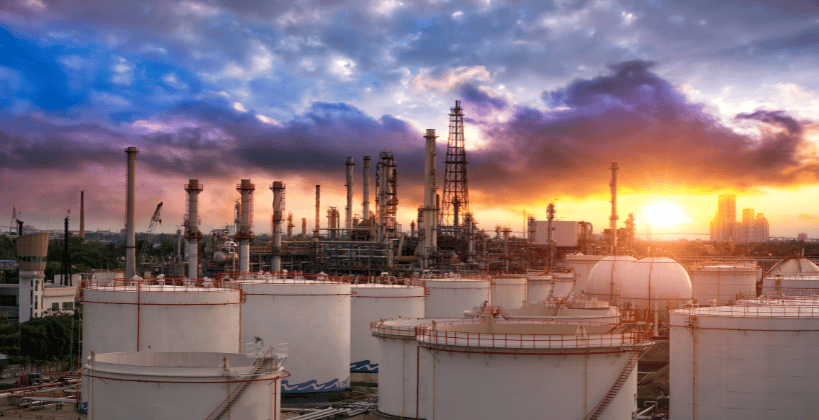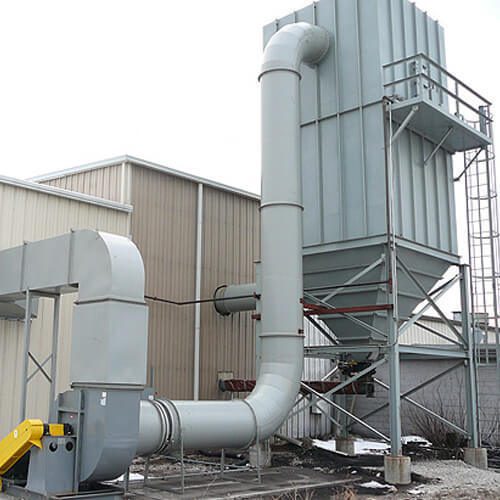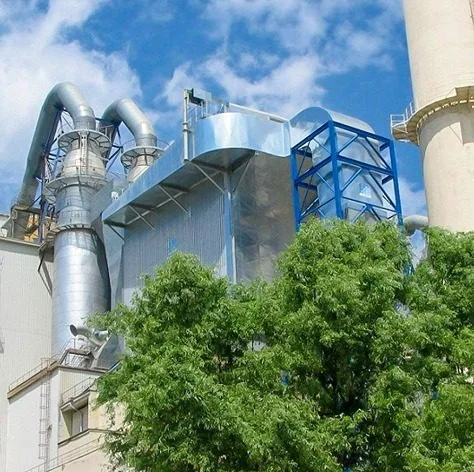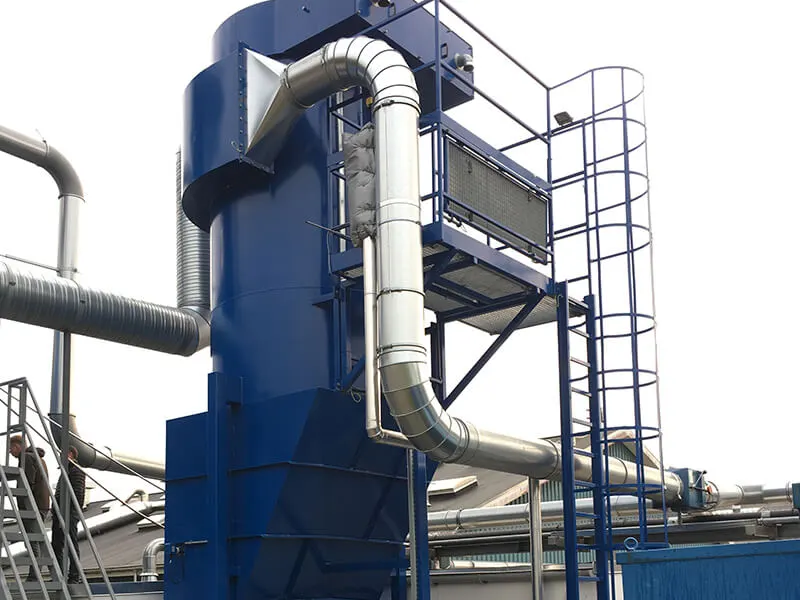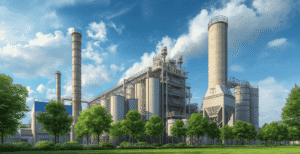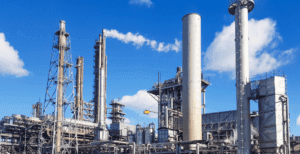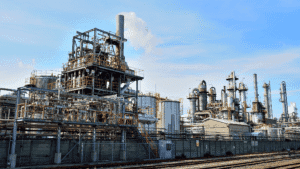In the global race toward sustainability, regulatory compliance, and operational efficiency, industrial filtration has become a cornerstone of responsible manufacturing. As industrial activity continues to scale up across key sectors—from cement and steel to chemicals and energy—filtration systems ensure clean air, environmental safety, and improved process reliability.
According to a comprehensive forecast by Future Market Insights, the global industrial filtration market is projected to reach USD 56.6 billion by 2035, growing at a CAGR of 4.9% between 2023 and 2035. This robust growth is fueled by a combination of regulatory mandates, industrial expansion, and technological advancements.
This blog explores the driving forces, emerging technologies, and strategic opportunities shaping the industrial filtration industry over the next decade.
What is Industrial Filtration?
Industrial filtration is the process of removing contaminants—solid particles, dust, fumes, or vapors—from air, gases, or liquids during manufacturing or processing. These systems play a critical role in ensuring:
Regulatory compliance with emission norms
Operational safety and product integrity
Protection of downstream equipment
Worker health and safety
Key industries leveraging filtration technologies include:
Cement and Building Materials
Metal and Mineral Processing
발전
Chemical and Pharmaceutical
음식과 음료
Waste Management and Recycling
As global industries modernize and governments tighten emission controls, the demand for effective filtration systems continues to rise.
Market Drivers: What’s Powering the Growth?
1. Stringent Environmental Regulations
Governments across North America, Europe, and Asia are implementing stricter air quality standards. Frameworks like the EU Industrial Emissions Directive, the U.S. Clean Air Act, and national clean air strategies are forcing industries to upgrade outdated filtration systems and adopt high-efficiency alternatives.
2. Global Focus on Sustainability and ESG
Sustainability has become a boardroom priority. Environmental, Social, and Governance (ESG) benchmarks now influence investor decisions, customer preferences, and supply chain evaluations. Industrial filtration supports sustainability by minimizing emissions, reducing waste, and promoting cleaner operations.
3. Growing Industrialization and Infrastructure Development
From Latin America to Southeast Asia, emerging economies are expanding manufacturing capacities, particularly in heavy industries like cement, steel, power, and petrochemicals. These projects demand advanced filtration solutions to meet environmental requirements from day one.
4. Health & Safety Compliance
Employee exposure to airborne pollutants, toxic gases, and micro-particles poses serious health risks. Filtration systems ensure safe indoor air quality in manufacturing environments, helping industries comply with global occupational safety standards.
전기 집진기
Emerging Technology Trends
1. Smart and Connected Filtration Systems
The integration of IoT, sensors, and cloud-based platforms is transforming traditional filters into intelligent systems. Features like real-time monitoring, predictive maintenance, and remote diagnostics are helping industries minimize downtime, optimize filter life, and reduce operational costs.
2. Advanced Filter Media and Coatings
The development of high-efficiency filter media, such as PTFE membranes, nanofibers, and synthetic non-wovens, has significantly improved dust collection performance. These filters offer:
- Lower differential pressure
Higher temperature resistance
Extended service life
3. Hybrid Filtration Systems
Combining technologies like Electrostatic Precipitators (ESPs) and Bag Filters in a hybrid configuration enables comprehensive removal of both fine and coarse particles. These systems are gaining traction in applications where single-technology setups fall short.
4. Modular and Retrofittable Designs
Compact and modular systems designed for plug-and-play installation are becoming popular. They cater to space-constrained facilities and are ideal for retrofitting into existing process lines with minimal disruption.
Market Segmentation: Insights by Sector and Region
By Product Type:
공기 여과: Dominant in cement, mining, power, and metal industries
Liquid Filtration: Vital in pharmaceuticals, food processing, and chemical applications
집진기: Widely adopted across all heavy industries for particulate control
By Industry:
발전: Adoption of flue gas filtration and particulate control systems
Cement & Mining: High demand for baghouses, cyclones, and hybrid filters
Chemicals & Petrochemicals: Explosion-proof and corrosion-resistant systems
제약품: HEPA/ULPA filters for sterile manufacturing
Food & Beverage: Compliance with hygiene standards and FDA/EFSA guidelines
Metallurgy & Foundries: Fume extraction and dust separation for smelters
By Region:
North America: Driven by air quality regulations and the modernization of plants
Europe: Strong focus on decarbonization and circular economy principles
Asia-Pacific: Fastest-growing market due to industrial expansion in China, ASEAN, and beyond
Latin America & Middle East: Infrastructure and energy projects fueling demand for filtration systems
당사의 솔루션 범위를 알아보세요:
Market Challenges
Despite strong growth prospects, the industrial filtration sector faces several challenges:
- High Capital Investment: Advanced filtration systems come with a significant upfront cost, often a barrier for small-to-medium enterprises.
- Operational Maintenance: Filters require regular inspection and replacement, which can increase long-term operating costs if not managed effectively.
- Skill Gap: In some markets, there’s a lack of trained personnel to operate and maintain complex filtration technologies.
- Regulatory Variability: Inconsistent emission norms across countries make it difficult for global companies to standardize their systems.
Addressing these challenges through localized service support, modular designs, and smart diagnostics will be critical in unlocking market potential.
Final Takeaway
The global industrial filtration market is on a strong upward trajectory, fueled by a confluence of environmental, economic, and technological drivers. As industries evolve, filtration solutions must keep pace, offering not just compliance, but operational excellence.
Whether you’re an OEM, plant operator, or environmental engineer, now is the time to rethink your air and fluid filtration strategy for the next decade.
About Intensiv-Filter Himenviro
Intensiv-Filter Himenviro is a global leader in air pollution control and industrial filtration systems. With decades of experience across cement, metals, power, and chemical industries, we deliver high-performance solutions tailored to complex industrial needs.
Our product portfolio includes:
- Reverse Air and Pulse Jet Bag Houses
- 전기 집진기(ESP)
- 하이브리드 필터
- 사이클론과 멀티클론
- Wet Scrubbers and Gas Cleaning Plants
🔧 Custom-designed. Globally delivered. Built to perform.
📩 Connect with us to discuss how we can support your plant’s air quality and emission control goals.
